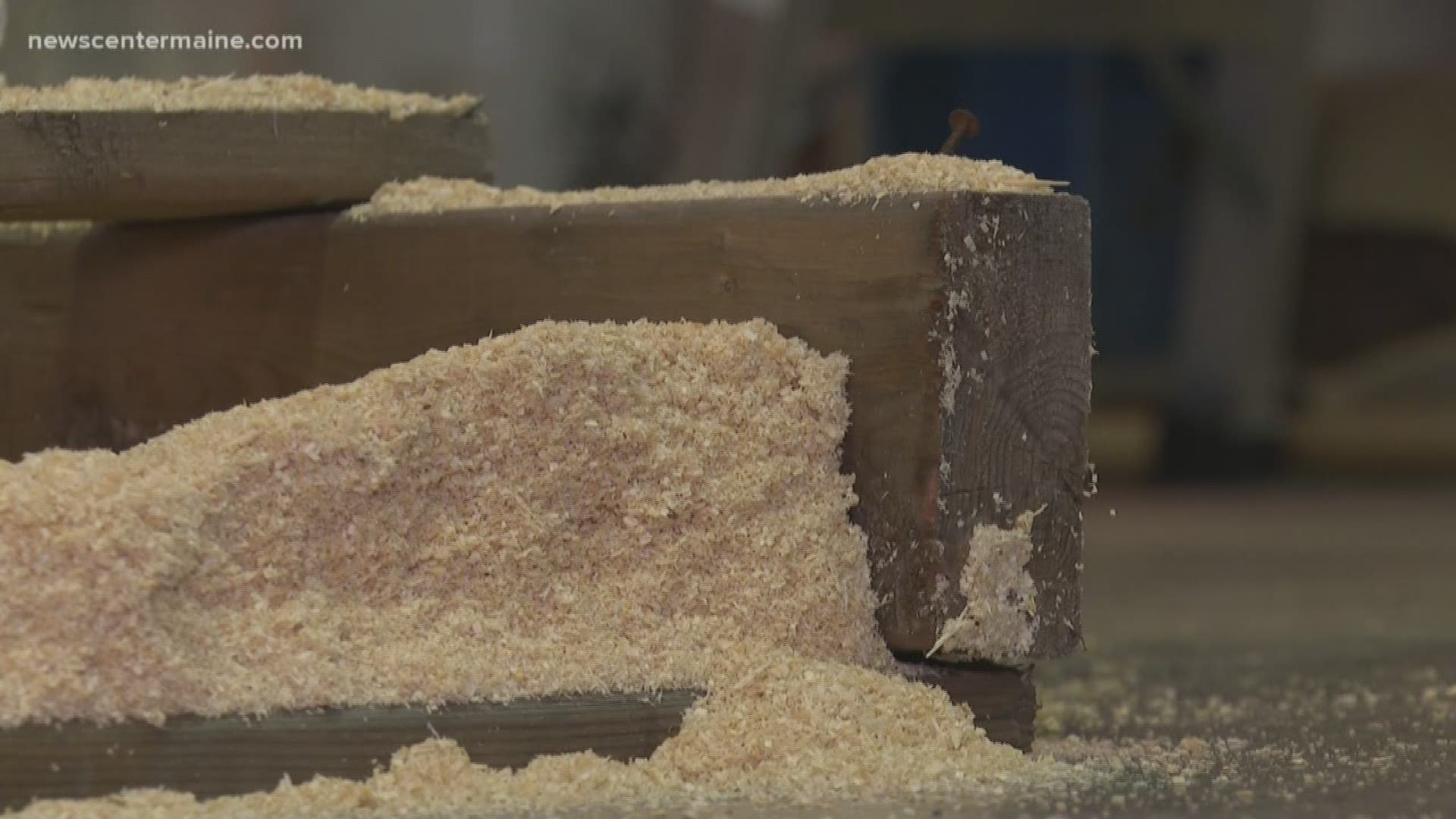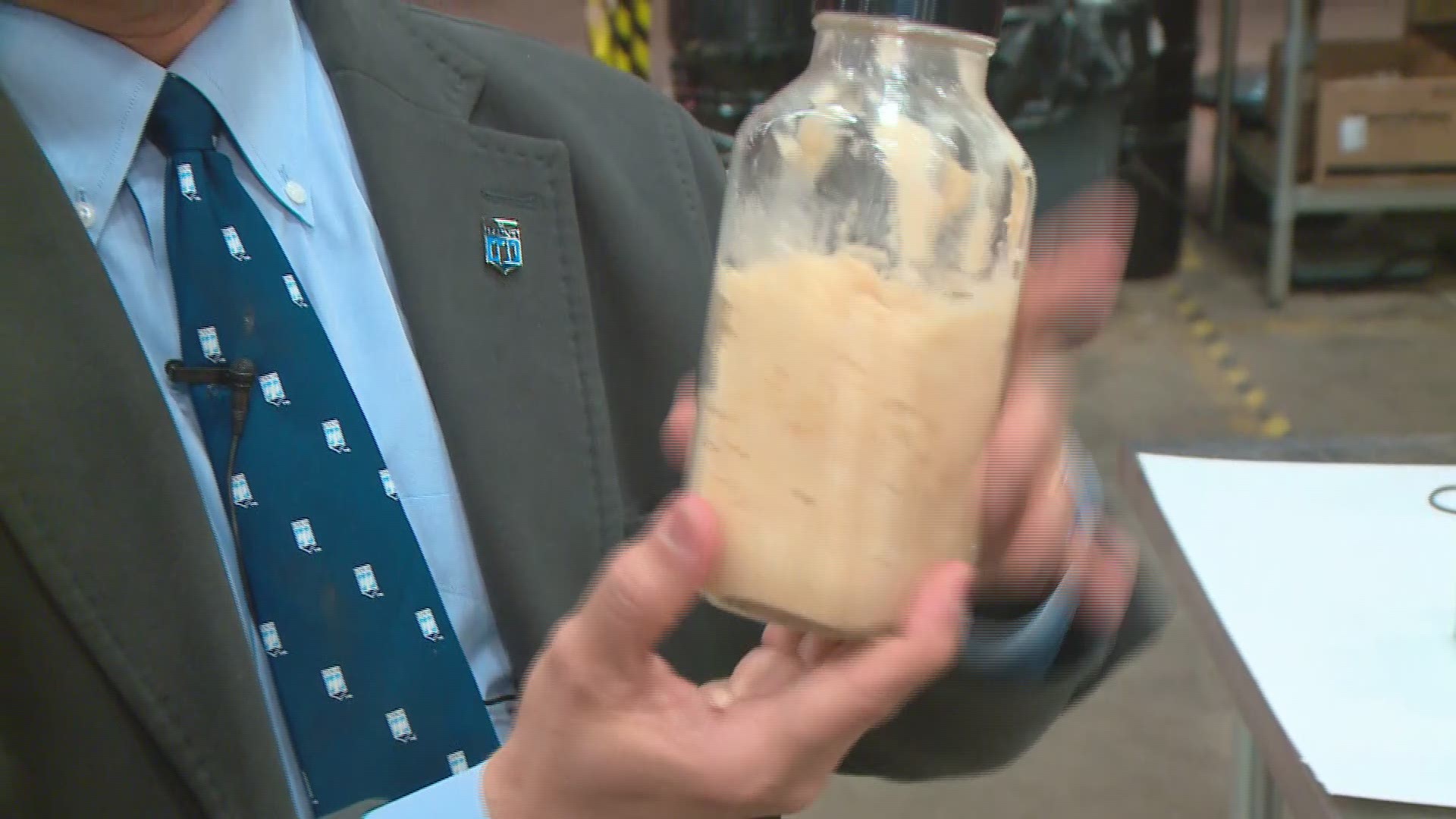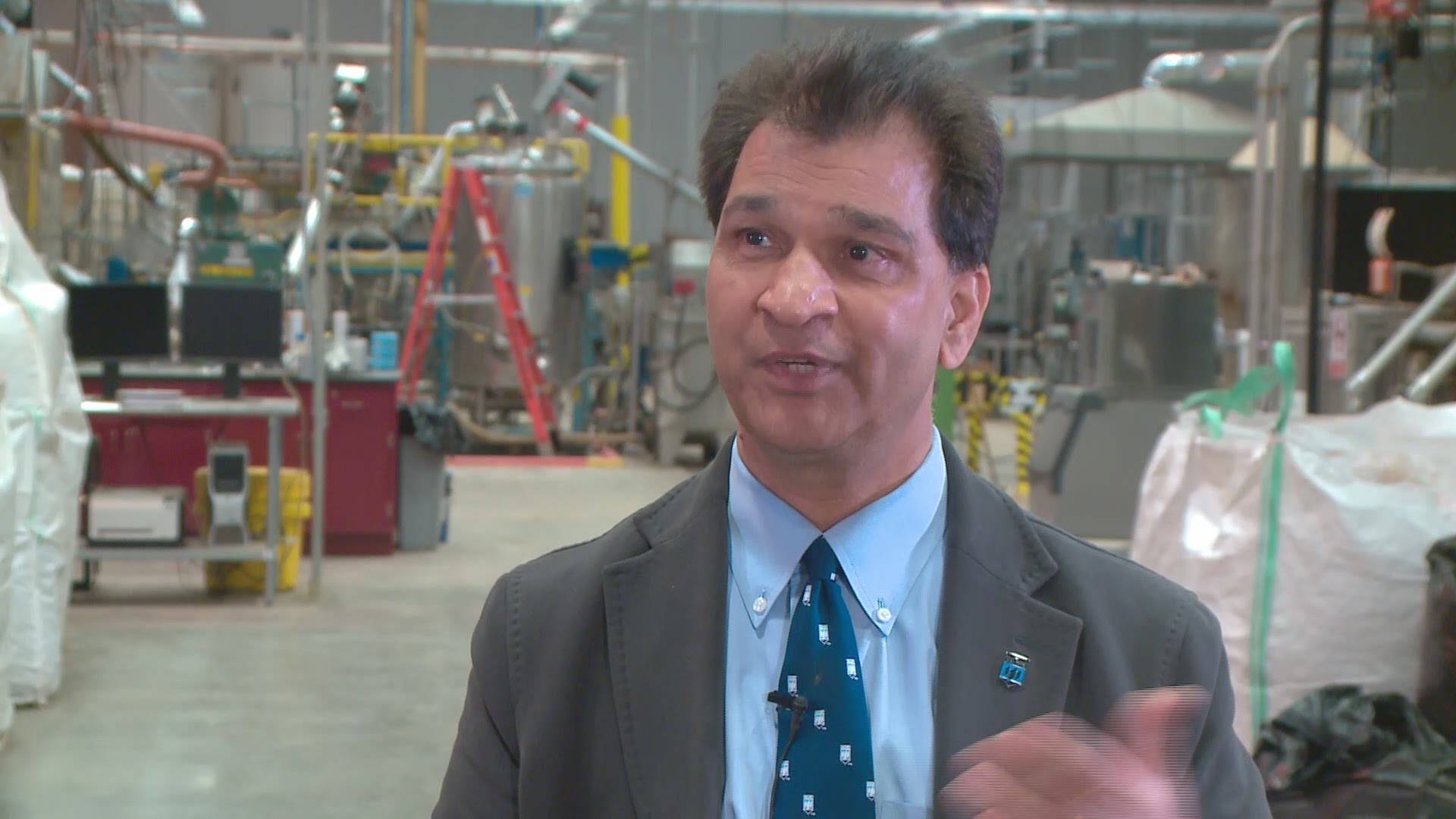OLD TOWN, Maine — Relinquished and run-down mill towns could soon breathe new life, following an unexpected discovery by a student at the University of Maine.
Since 2012, and millions of dollars later, the Forest Bioproducts Research Institute, located next to the reclaimed Old Town Mill, has been operating a fee-for-service pilot plant where any new startup company or even a large corporation can try new ideas and collect engineering data.
They take sawdust, old cardboard boxes, logging residues, such as wood pulp, or any wood biomass and can convert it into crude oil, 'a one of its kind' facility.
Hemant Pendse has been with the University of Maine for 40 years. He is now the director of the Forest Bioproducts Research Institute. Pendse says the plant produces sample quantities much larger than beakers and test tubes.
"First, we do an intermediate, we call it acids and we turn it into salt," said Pendse. "We will see dry salt powder. From the dry salt powder, we are making premium crude oil, which can be processed just like any oil refinery and make gasoline, diesel and jet fuel.”
FBRI can crank out about one-ton a day when the plant is running. It's not enough to fill a gas tank, but the patented and protected intellectual property is there for companies to scale-up their research.
This process has produced a small amount of crude oil since its launch, but it's the engineering data the private sector is interested in. Amy Luce, the manager of the UMaine Research Institute, says it has only created a couple of barrels of crude oil overall.
According to Pendse, the crude oil being produced from the lab is cleaner than oil from Saudi Arabi because it doesn't contain sulfur. Right now, the United States Air Force is testing the specifications to see if military and commercial aviation can use the Maine-made refined jet fuel as a sustainable option, rather than relying on fossil-based fuel.
The same technology could be put into running mills as another revenue stream and could be sustainable if other industries fluctuate. It could potentially restart shuttered mills, leading to new jobs, retaining not only mill worker positions, but chemical engineers.
“Many people know there are a lot of pulp mills closed, but there are pulp mills like Old Town... that has the infrastructure, has the wood yard, has the power plants," said Pendse. "Can we add this extra revenue generating stream and show, that on a commercial scale, that it is feasible and that we can actually meet the specifications of the private sector. Then I think a lot of new doors will open.”
Maine's Department of Economic and Community Development says it is starting to partner with companies as the commercialization biofuels progress in Maine.
“It’s really about diversification of our heritage industries," says Commissioner Heather Johnson. "We have a bunch of wood residuals... to support long term reductions in greenhouse gases and additives to fuel products.”
Wood-based biofuel is about 60% lower on greenhouse gas emissions than traditional diesel fuel, according to Johnson. "It will help support and strengthen other uses for wood products in the state. We think it is down the path of highest and best value for our natural resources, value-added jobs, as well as positive impact on climate change."
The Maine Department of Economic and Community Development says the technology is already being implemented in Maine. The commissioner says a $750,000 investment in Biofine in Bucksport, will make an additive to home heating oil. Mainers would see more efficient heating oil without converting or modifying your burner.
A 110-ton refinery facility is in talks of moving to Maine for its infrastructure and environmental permits, is also in the works. It's in preliminary fundraising stages to raise capital to implement the new technology. A location has not been decided or disclosed.
The Renewable Fuel Standard requires fuel to be blended into transportation fuel in increasing amounts each year, escalating to 36 billion gallons by 2022, according to the U.S. Department of Energy. UMaine's program could qualify as an advanced biofuel because it is derived from cellulose.
This is one of the products featured during Trade Day 2019 put on by the Maine International Trade Center. Other bioeconomy businesses will be on display Friday May 24, to showcase Maine products on the global scale.



